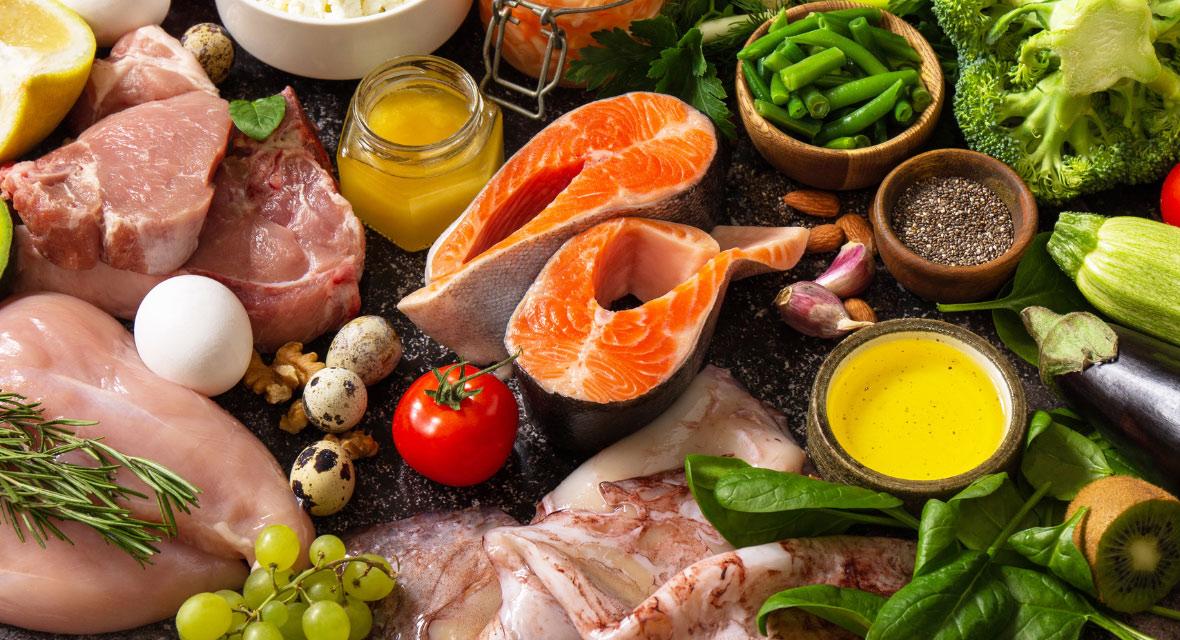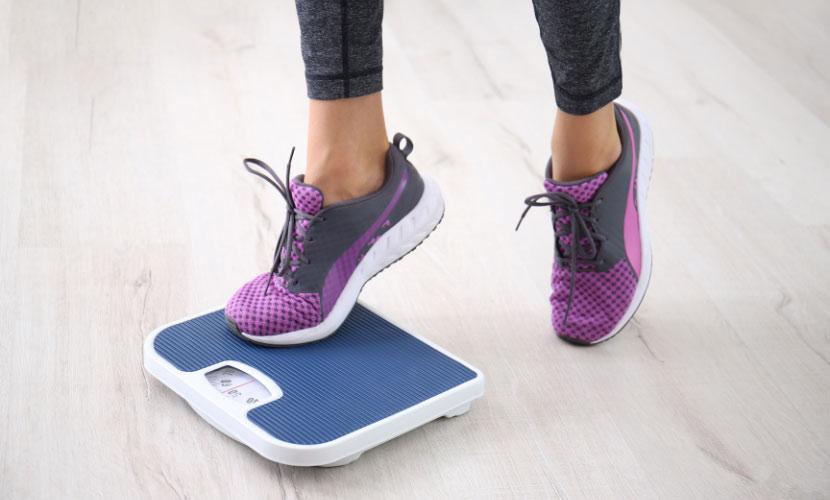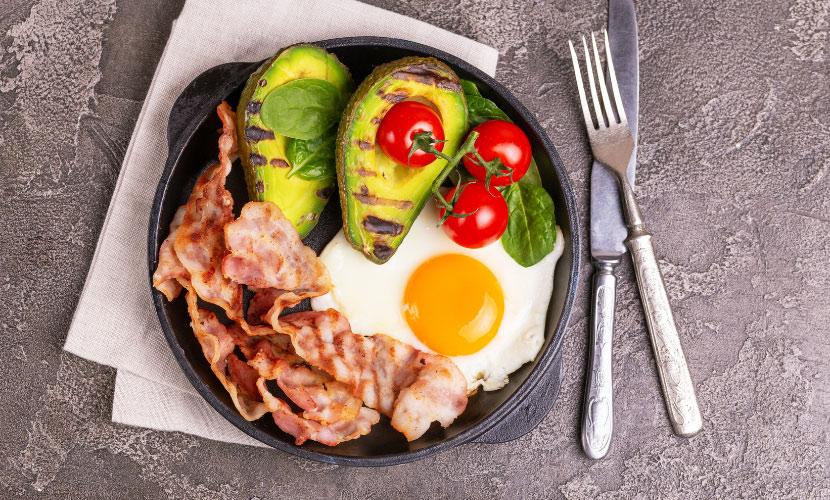🏆 As seen and loved on Shark Tank Dubai 🏆

Benefits of a High-protein Diet
Key Advantages and Sources of Protein Diet
Some people might be conscious of the amount of fat in their food, while others are iffy about the quantity of carbs in their diet, but one nutrient that people don't compromise on (and for the right reasons) is protein.
Whether it is for the proper functioning of your hormones and enzymes or the growth and maintenance of your cells, protein plays a crucial role in most bodily developments. In other words, protein is a multi-beneficiary nutrient that should be a must in your daily diet.
Yet, you may question the risks associated with eating too much protein, and wonder if it is at all a thing. Well, we are going to find that out alongside the benefits and the foods you need to include and exclude from a high-protein diet
In addition, we are going to take a systematic look at how you should consume a high-protein diet since how you eat is as important as what you eat. Wouldn't you agree?
Why Protein is Important?
Coming to the main highlight of our discussion, let us begin with the multi-beneficiary aspects of a high-protein diet. Follow through.
Helps Increase Your Muscle Mass
First and foremost, you need to understand that protein is the essential component that serves as the building block of your muscles. This is why you would often find your gym trainer to recommend a protein-rich diet since they play a pivotal role in the growth of your muscles.
Various research has proven that the consumption of a high-protein diet is crucial if you are involved with resistance training as it compliments the effects of physical activities for the maintenance of your muscle mass.
Furthermore, many people, in their attempt to lose weight, end up losing protein instead of fat. That can hurt your body. This is why protein intake for those who are looking to lose weight is heavily recommended.
Reduces Any Unnecessary Food Cravings
We all have had food cravings even when our hunger has been satiated and we are full. You need to remember that food cravings are not bodily needs. Instead, this is your brain asking for a reward. As you can guess, cravings can be extremely difficult to control.
But fortunately, protein can come to your aid in this situation. Studies have proven that overweight men experienced a 60 percent reduction in their food cravings by increasing 25 percent of their protein intake. In addition, the urge to consume a snack at night also creased by half.
Food scientists have assessed that this is due to the better functionality of dopamine, which protein helps in doing so. Dopamine is one of the primary hormones of your brain that regulates addiction and cravings.
Strengthens Your Bones
Next up on our list of the benefits of a high-protein diet, we need to bust a myth. For a long time, people thought that consuming protein maximizes the acid content in your body, which ultimately leads to calcium leaching from the bones.
However, recently it has been seen that these are just misconceptions, and a high-protein diet instead, strengthens your bones and decreases the chances of you suffering from any fractures or osteoporosis as you age
Women tend to develop osteoporosis soon after menopause. Therefore, for them, including protein in their diet in their 40s and 50s is all the more essential.
Helps Control Body Weight

As we stated earlier, losing weight should be based on the reduction of fats, not the reduction of muscle mass. And this can be achieved through a high-protein diet.
People who gain calories through protein intake are more capable of burning fats and hence are in a better position to control their weight. So, down with all those theories that asked you to starve yourself for reaching the ideal weight.
You can wear your favourite pair of jeans and that awesome dress by maintaining the ideal waistline without compromising on your food consumption. You just have to eat healthily and smartly.
Boosts Your Metabolism
This is more in continuation with the previous point. Protein helps in burning fat, which, in turn, boosts your metabolism, which keeps you away from gaining unnecessary fat.
This is because the calories present in protein-rich food items have a higher TEF (Thermic Effect of Food) in comparison to carbs and fat-rich food items. It has been even stated that consuming a high-protein diet is similar to performing an hour of moderate-intensity exercise every day.
Lowers Your Blood Pressure
When your blood pressure is not under control, it can lead to various chronic diseases and ailments including strokes, heart attacks, and kidney failure. But protein can keep a tab on the rise of your blood pressure.
It has been seen that protein helps in decreasing both systolic blood pressure, which is the top number of readings, and diastolic blood pressure, which is the bottom number of readings. Furthermore, protein-induced food items also help in controlling triglycerides and cholesterol.
Acts as a Shield When You Grow Old
As you age, your muscles tend to become weak. Most old people tend to suffer from sarcopenia, which leads to bone fractures and frailty. Consuming protein regularly can help in preventing sarcopenia and in avoiding the deterioration of your muscles.
Therefore, you end up living a healthier life with stronger muscles, bones, and overall improved energy in your old age with a healthy diet rich in protein.
Helps Your Body Repair after Injury
Since proteins form the main building blocks of your cells and tissues, you can guess how essential of a role it plays in a speedy recovery after an injury.
This is why people who have heavy cuts and bruises or fractured bones are often asked to adopt a high-protein diet for the next few days/weeks of their injury.
Foods to Include in a High-protein Diet

First and foremost, you need to ensure that you equally distribute your protein intake in all the meals of the day – breakfast, lunch, dinner, and even in your brunch or supper. With that being said, here are some of the protein-rich food items that you need to include in your diet.
- Broccoli
- Potatoes
- Corn
- Asparagus
- Spelt
- Cauliflower
- Halibut
- Nut butter
- Brussels sprouts
- Watercress
- Whey protein powder
- Lima beans
- Black beans
- Chicken breast
- Beef
- Eggs
- Chinese cabbage
- Oats
- Tempeh
- Tuna
- Salmon
- Shrimp
- Turkey
- Bison
- Hemp seeds
- Pumpkin seeds
- Chia seeds
- Legumes
- Pistachios
- Peas
- Sprouted grain bread
- Quinoa
- Milk
- Chickpeas
- Almonds
- Greek yoghurt
- Cottage cheese
- Avocado
- Lentils
- Sun-dried tomatoes
- Guava
- Artichokes
Not all of these aforementioned foods are available all around the globe and we understand that different people follow different dietary routines. This is why we have tried to list a variety of different types of food so that you can choose a few among them.
We have got not only meat-based products here but also various vegetarian diet ingredients that you can incorporate into any of your favourite dishes.
How to Eat a High-protein Diet?
There are some general guidelines that, if followed, will help you reap the most benefits from a high-protein diet.
You need to spread out the consumption of your protein throughout the day. Concentrating all your protein in one single meal is never ideal.
Choose a healthy source of protein such as nuts, low-fat dairy products, fish, turkey, and lean chicken instead of red meat or any highly saturated fat or processed carbs.
Don't overcompensate the lack of protein in your diet so far by eating too much protein. More about this will be discussed in the next section of the article.
How Much Protein Do You Need?
Now, the question arises as to how to determine the quantity of protein one needs to consume, Although there's no specific answer to this as it depends on several extenuating circumstances, we will still try to provide you with a number.
For an average person (we are not including athletes or bodybuilders here), who weighs around 140 lb or 70 Kg, 125 grams of protein per day will suffice.
But still, if you are unsure, feel free to speak to your doctor or nutritionist and be transparent to them about your health conditions as well so that they can give you the best-personalized high-protein diet chart for you.
Don't overcompensate the lack of protein in your diet so far by eating too much protein. More about this will be discussed in the next section of the article.
Is Too Much Protein a Thing?
As with any good thing in life, too much protein can indeed be bad for you and as such, you need to keep a watch on your protein intake.
One of the most prevalent issues that can arise from consuming too much protein is that you can develop kidney stones and you might have to go for surgery to remove those stones.
Moreover, if a high-protein diet is composed mainly of saturated fats such as red meat, then the chances of colon cancer and heart ailments may increase. However, if you are mixing up your protein diet with different types of food items, then you will be fine.
Don't overcompensate the lack of protein in your diet so far by eating too much protein. More about this will be discussed in the next section of the article.
Also, if you don't back up your protein with carbs, then it can cause bad breath. On the other hand, if you are not having sufficient fibre, then those proteins in your body can make you constipated.
Some of the other issues that can be generated with too much protein are dehydration, diarrhea, and calcium loss. So, try to follow the guidelines.
Bottom Line
Protein is by far one of the most important nutrients one needs for their survival and a deficiency of it can cause various ailments. Incorporate the protein-based ingredients in your diet and ensure an even distribution of protein intake throughout the day. Our healthy meal plans Dubai make this process simple and convenient for you.
In addition, compliment your high-protein diet with regular exercises, proper hydration, and good sleep in order to extract the most benefits out of them. And before you even realize it, you will note the positive impact these little changes will bring to your life
Reach out to start your fitness journey with us!
Meal Plans
Delivery Details
Legal Information
© 2020-2026 VMeals. All rights reserved. VMeals™ is a trademark of Flip Side Restaurant and Cafe L.L.C
We accept
